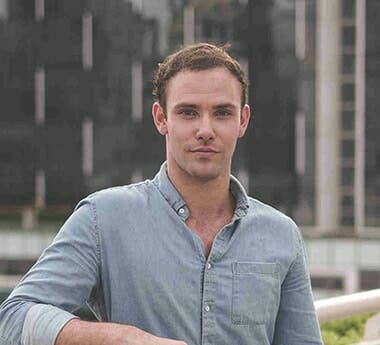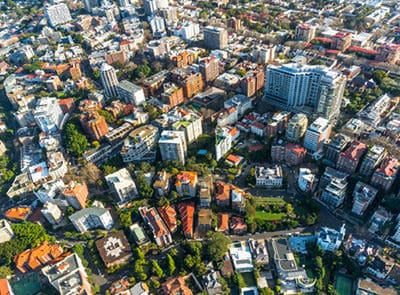
Hmlet co-founder Yoan Kamalski says Australia was the next natural step
Singapore-based co-living firm Hmlet announced on Monday that it has taken over Australian co-living operator Caper Co-living, just three months after raising $6.5 million in a Series A funding round led by Sequoia India.
Following the transaction, Hmlet intends to launch in March a pair of suburban Sydney properties, as the first in a series of locations it will launch in the New South Wales capital over the next few months.
Hmlet clarified that no money changed hands during the transaction. However, the Caper Co-living team will join Hmlet, after which Caper Co-living will cease to exist.
Plans are also underway to expand to Melbourne and Brisbane, according to the company’s press release, with a goal of expanding the company’s portfolio of shared space apartments to 2,400 beds by the end of 2019.
Entering the Australian Market
“With the growing demand for more flexible, community-based options of living in urban cities such as Sydney, Australia felt like the next natural move for us,” Hmlet CEO and Co-Founder Yoan Kamalski said in a statement.
The first of the company’s planned properties is a facility at 601 King Street property in the Sydney suburb of Newtown, which is designed to accommodate 20 members and offers co-working, communal living, and kitchen spaces, as well as a rooftop terrace. The second property is a six-level asset in Marrickville which will house 70 residents, and was completed in January 2019. The Marrickville residence covers more than 2,400 square metres of net leasable area and includes a garden terrace and outdoor kitchen with views of Sydney’s central business district.
According to The Australian Financial Review, Caper Property, the parent company of Caper Co-living purchased at least A$28 million worth of real estate in Sydney last year. Hmlet clarified that no property assets were included in the transaction, and that it “holds no debt in its balance sheet” associated with Caper Property or its projects, according to a company spokesperson.
Among the properties purchased by Caper Property was a site in Ultimo — near Sydney’s CBD — which it picked up for a reported $20 million in August 2018, and a former hotel in Leichhardt for A$8 million, according to the Australian Financial Review. Caper disputes the reported amount paid for the properties.
Caper’s only property currently listed on its website is on 601 King Street, the address of Hmlet’s Newton development.
Singapore, Hong Kong and Sydney
The company’s expansion into Australia mirrors its strategy in Hong Kong, where it added 30 properties by acquiring competitor we r urban in July of last year.
While Hmlet has not announced any property purchases in the past, it has a penchant for renting-out whole properties, instead of floors or units. In November of last year, two of the 13 locations it opened in Singapore were for entire buildings. The firm’s second standalone building deal was done in conjunction with real estate investment firm ANB Investment, controlled by the billionaire Indonesian Pangestu family, which also owns the diversified conglomerate Barito Pacific Group.
“Hmlet’s centralised supply model, of taking over full buildings compared to standalone units across many buildings, is particularly compelling because it brings a true sense of community along with economies of scale,” said Abheek Anand, managing director of Sequoia Capital India said in November of last year.
Banking on Australia’s Correction

Co-living may offer higher yields than traditional rents, as Sydney’s market spirals downward.
The announcement comes as the Australian housing market goes into full correction territory, which may have investors looking for alternative real estate investments with more attractive yields. In the last quarter of 2018, rental yields for houses hit 2 percent, and that of units 3 percent. Caper offered investors yields in the vicinity of 6 to 7 percent.
After growing 85 percent between 2012 and 2017, housing prices in Sydney dropped 6.5 percent in 2018, driven by a steep fall in the fourth quarter- the largest in 14 years. Prices have been hit by tighter lending standards and negative sentiment. According to data from CBRE, house transfers in Sydney were down 19.9 percent year on year to 41,349, while unit transfers fell even more steeply by 27.1 percent year on year to 32,264.
Aiming for 2,400 Beds in 2019
Hmlet’s acquisition strategy has allowed it to expand rapidly, doubling its number of tenants to approximately 600 within the last six months. In November of 2018 the company listed 13 locations in Singapore, five in Tokyo, and one in Hong Kong, According to its website, the startup now has 28 locations in Hong Kong and 13 in Singapore — which makes it one of the largest co-living company in the city-state.
Hmlet, which projects to have more than 2,400 beds by the end of this year, aims to have 1,000 members in Australia in 2020, according to the Australian Financial Review.
It is unclear how Hmlet has financed its recent growth, but the company raised $6.5 million in its November 2018 Series A funding round (led by Sequoia India), and $1.5 million in its 2017 a seed round led by Arum Investment in 2017. It members generate a cash flow in the ballpark of S$1 million per month, according to Mingtiandi estimates.
This article was updated to reflect Hmlet’s following clarifications: 1) that the company didn’t assume any debt to fund the deal, and 2) that none of the real estate assets of Caper Property would change hands during the transaction.
Leave a Reply